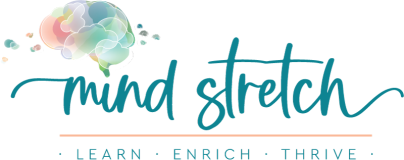
Dyslexia is a learning difficulty that affects reading, writing, and spelling abilities. While it cannot be “cured,” various interventions can significantly improve literacy skills and overall learning.
The best treatment for dyslexia combines structured literacy programs, assistive technology, and targeted support from specialists. Identifying the right approach early on can substantially impact a person’s academic and personal development.
Understanding Dyslexia Treatment Approaches
A structured, evidence-based dyslexia program is essential for addressing reading difficulties. Programs based on the Orton-Gillingham approach focus on multisensory learning, which engages sight, sound, and touch to reinforce language comprehension.
These programs help individuals break words into smaller, manageable parts, making reading and spelling easier. Additionally, phonics-based methods provide explicit instruction in letter- sound relationships, a crucial component of dyslexia intervention.
Assistive Technology and Dyslexia Support
Incorporating assistive technology into daily learning can be a powerful way to overcome dyslexia. Tools such as text-to-speech software, audiobooks, and speech recognition programs support individuals by reducing the strain of reading and writing.
These resources allow learners to focus on comprehension rather than decoding words, improving confidence and academic performance. Schools and workplaces increasingly recognise the benefits of these tools, ensuring that individuals with dyslexia receive the necessary support.
The Role of Specialised Instruction
Receiving specialised instruction from trained educators is another best treatment for dyslexia. Tutors and therapists specialising in dyslexia use personalised learning strategies to address specific challenges.
One-on-one or small-group instruction provides targeted support, helping individuals develop more substantial reading and writing skills. This type of intervention is most effective when implemented consistently and reinforced at home and in school.
Building Confidence and Self-Esteem
Addressing the emotional aspects of dyslexia is just as important as improving literacy skills. A comprehensive dyslexia program should include strategies to build confidence and resilience. Many individuals with dyslexia experience frustration or low self-esteem due to their reading struggles. Encouraging a positive mindset, celebrating small achievements, and providing a supportive environment can significantly impact long-term success.
Creating an Effective Learning Environment
A supportive home and school environment is a crucial way to overcome dyslexia. Parents, teachers, and tutors should collaborate to implement strategies that cater to a child’s learning style. Providing extra time for reading assignments, using audiobooks, and incorporating hands- on learning activities can create a more inclusive and practical educational experience.
Conclusion: Find the Right Support for Dyslexia
If you or a loved one is struggling with dyslexia, finding the best treatment for dyslexia is essential for long-term success. The right interventions, including structured literacy programs, assistive technology, and specialised instruction, can make a significant difference in overcoming reading challenges.
Take the Next Step with Mind Stretch
At Mind Stretch, we offer a tailored dyslexia program designed to help individuals develop the skills they need to succeed. Our expert coaches use proven techniques to improve reading, writing, and comprehension. If you’re looking for an effective way to overcome dyslexia, contact Mind Stretch today and discover how we can support your learning journey!
